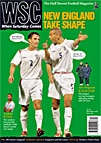 Update on clubs in crisis, Tom Davies reports
Update on clubs in crisis, Tom Davies reports
The slow-burning decline of Bristol Rovers this decade has had less attention than other more immediately cataclysmic crises, but matters have come to a head recently with a batch of resignations. Four directors quit in the summer, taking promises of extra investment with them. The spat was sparked by the rejection of a plan by managing director Mike Turl to restructure the club, which would have involved Turl buying £200,000 worth of shares as part of a wider investment plan and the appointment of a new chairman and vice-chairman. But chairman Geoff Dunford and fellow director Ron Craig, who between them held more than 50 per cent of the shares, rejected this and criticised the plan in public. Turl resigned, as did three other directors, including the directly elected supporters’ club representative, citing a lack of boardroom democracy. Increasingly ill-tempered wars of words involving the ex-directors, fans and Dunford have followed, while the team and club continue to stagnate.
The four former directors have set up a campaign, Rovers Agenda for Change, seeking to pressure the board into outlining long-term plans for action to take the club forward. But Dunford’s response has not been accommodating: having recently made public plans of his own for a new share issue and having then invited the former directors to reinvest in the club, he none the less refuses to speak to them. He has also announced his intention to stand down in March next year, claiming that he’d been looking to leave for a while and was giving the board time to replace him.
The boardroom turbulence has increased anxieties over the scheme to redevelop the Memorial Ground to incorporate a completely remodelled stadium alongside homes for key workers and students. The plans, considered vital for putting the club on a viable footing, go before the city council soon, but Rovers fans are anxious about enduring another lengthy spell of playing outside Bristol while building work is carried out. Given that Rovers have only been back in the city for ten years after their decade-long exile in Bath following the sale of their former Eastville ground, these are understandable worries. Gates are declining enough in Bristol as it is and no decision has yet been made on where they will play in exile. With the rugby club, which shares the Memorial Ground, likely to move in with Bristol City, Bath and Stroud’s Forest Green have been mooted as hosts for Rovers.
Relying on property development to fund stadium work has its pitfalls, too, as Leyton Orient fans have discovered recently. The initial plan to use revenue from the sale of the corners of Brisbane Road for flats to build two new stands went over budget last year, which led the club to sell off lettable space in the new West Stand to a consortium, SBLL, half-fronted by chairman Barry Hearn. The club also revised their plans for the as-yet-unbuilt North Stand to include yet more flats on extra land behind the ground, which had been bought by SBLL for £1.25 million. But Waltham Forest councillors threw out the plans for extra flats last month, prompting a threat by Hearn to move Orient out of the borough. Fans suspect this is just bluster – the club have a good chance of winning approval for the revised plan on appeal – but a scheme initially touted as a prudent way of both modernising the ground and securing the viability of the club seems a long way from its initial stated aims. The Leyton Orient Fans’ Trust have urged the club to commence work on the North Stand plan that was granted permission in 2003 as part of the original scheme.
A setback for the cause of fan ownership at York City, where the supporters’ trust have ceded control back to private ownership in the face of overbearing financial pressure. The York City Supporters’ Trust took over two years ago and helped secure the club’s tenure at Bootham Crescent. But the singularly harsh circumstances in which the takeover took place – at the time of relegation from the League and uncertainty about the ground – took their toll and last month the trust membership voted 78 per cent to 22 to sell a controlling stake to club managing director Jason McGill’s company JM Packaging, who become the majority shareholders in return for a £1m investment. The trust does, however, retain a 25 per cent stake, and have secured guarantees on the sale of the ground. York intend to find a new stadium by the end of the decade.
Farnborough Town will be in administration for several months, though a takeover has been lined up by a consortium led by businessman Tony Theo. The deal, however, will not go through until the end of the season, which is likely to be spent battling relegation from Conference South after the club were given a ten-point penalty for calling in the administrators. Whether the takeover can lessen the fragility of the club’s existence remains to be seen.
From WSC 238 December 2006. What was happening this month